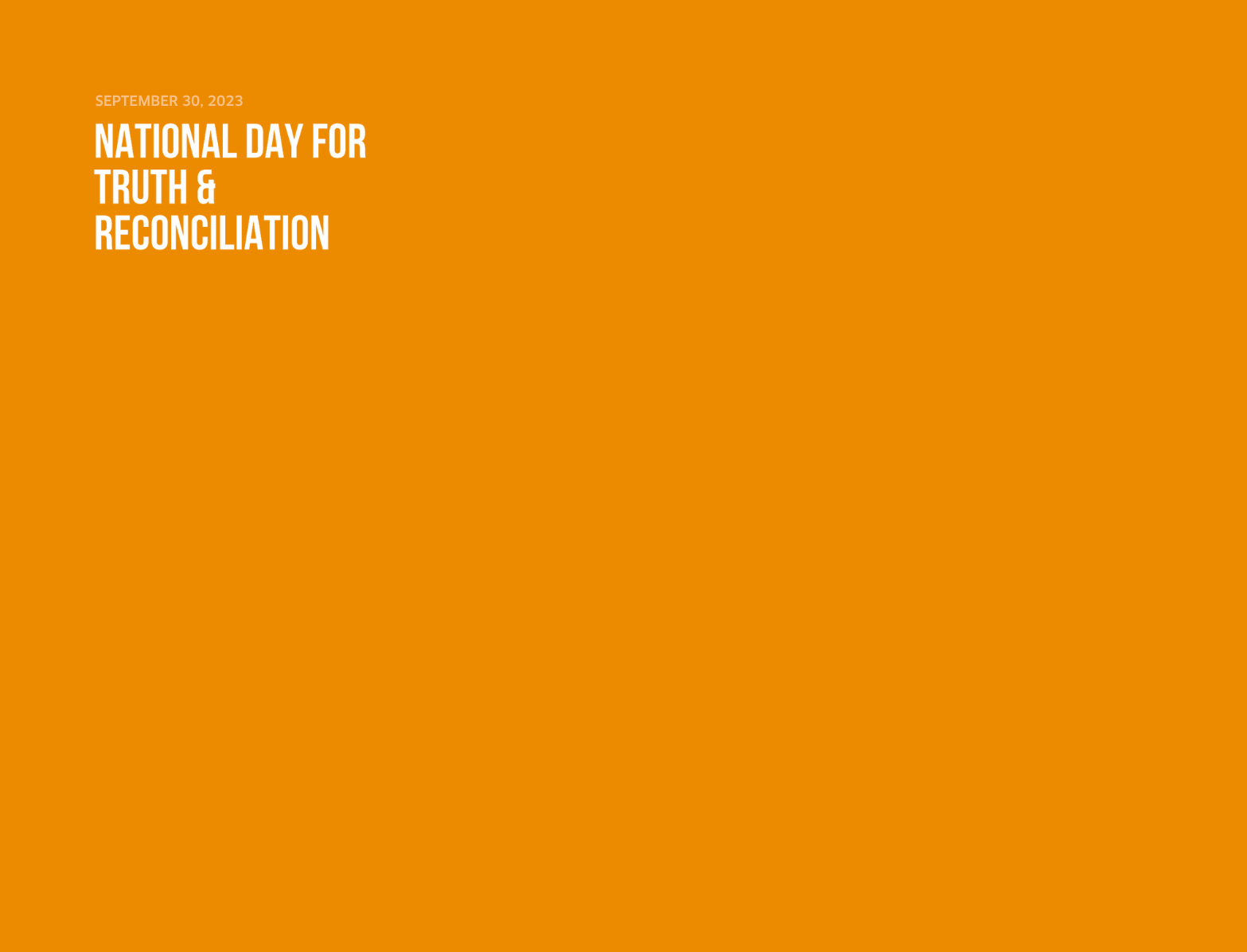September 30 is National Day for Truth and Reconciliation.
On this important day – a DIALOG-recognized holiday for our Canadian studios since 2021 – we come together in the spirit of reconciliation to learn about the history of residential schools in Canada and honour its survivors, acknowledge the legacy of these institutions, and commit to building a more just and inclusive future for all.
This year, on Friday, September 29, our Canadian studios will be closed in recognition of National Day for Truth and Reconciliation. This closure provides us an opportunity to reflect on the actions we can take to foster understanding in our communities and beyond.
Since 2021, our Practice has led internal discussions and workshops that have helped further our collective understanding and engagement with the path of reconciliation. On Thursday, September 28, we came together with DIALOG’s Joost Bakker, Nicole Moyo, and our Indigenous Storytelling Team (IST) for a practice-wide conversation about cultural appropriation from an indigenous perspective. Leading this discussion was our friend, Coast Salish artist, Shain Niniwem Selapem Jackson.
Cultural appropriation has been a topic of immense controversy within numerous sectors, particularly in design and the arts. Through his stories and discussion, Shain provided DIALOGers with an understanding of the operational realities that Indigenous peoples and communities face, and the challenges that continue to be present.
Shain guided us on how our design practice can develop tools to navigate our creative processes with more thoughtfulness and respect.
What you can do
As we approach National Day for Truth and Reconciliation, there are many actions you can take to move reconciliation forward and create space for Indigenous experiences, knowledge, and cultures. The IST compiled a list of suggested resources to help educate ourselves throughout the year.
Wear Orange
We encourage you to wear orange throughout the week leading up to National Day for Truth and Reconciliation. By wearing orange, you are showing your shared commitment towards reconciliation and truth and are honouring residential school survivors and those who did not make it home.
Start a Learning Journey
Explore the rich and diverse cultures, voices, experiences, and stories of Indigenous Peoples in Canada with a multitude of resources provided by the Government of Canada.
Watch something
- Indian Horse, from Stephen Campanelli
- Our People Will be Healed, from Alanis Obomsawin
- The Road Forward, from Marie Clements
- Cold Journey, from Martin Defalco
- Rhymes for Young Ghouls, from Jeff Barnaby
- We Were Children, from Tim Wolochatiuk
- Savage, from Lisa Jackson
- Where Are the Children? Healing the Legacy of the Residential Schools, from the Legacy of Hope Foundation
- History of Native California, on YouTube
Read up
- The Orange Shirt Story, by Phyllis Webstad
- Up Ghost River: A Chief’s Journey Through the Turbulent Waters of Native History, by Edmund Metatawabin with Alexandra Shimo
- Aggie and Mudgy, by Wendy Proverbs
- 21 Things You May Not Know About the Indian Act, by Bob Joseph
- Resistance and Renewal: Surviving the Indian Residential School, by Celia Haig-Brown
- Broken Circle The Dark Legacy of Indian Residential Schools: A Memoir, by Theodore Fontaine
- Permanent Astonishment, by Tomson Highway
Attend an event
The Culture Days national organization has curated an extensive list of National Day for Truth and Reconciliation events across Canada. Find an event near you at culturedays.ca.
About DIALOG’s Indigenous Storytelling Team
This grassroots group came together with the common goal of helping DIALOG and DIALOGers become better allies, to create space for Indigenous stories to be heard, and to improve conversation about Indigenous perspectives and knowledge and how it applies to our work.
By gaining a foundation of knowledge for Indigenous-settler history we can build upon and learn more about Indigenous perspectives so we can continue to meaningfully improve the wellbeing of communities and the environment we all share, as allies together with Indigenous peoples.
